Uzbekistan steps up to support neighbor Afghanistan at critical humanitarian juncture
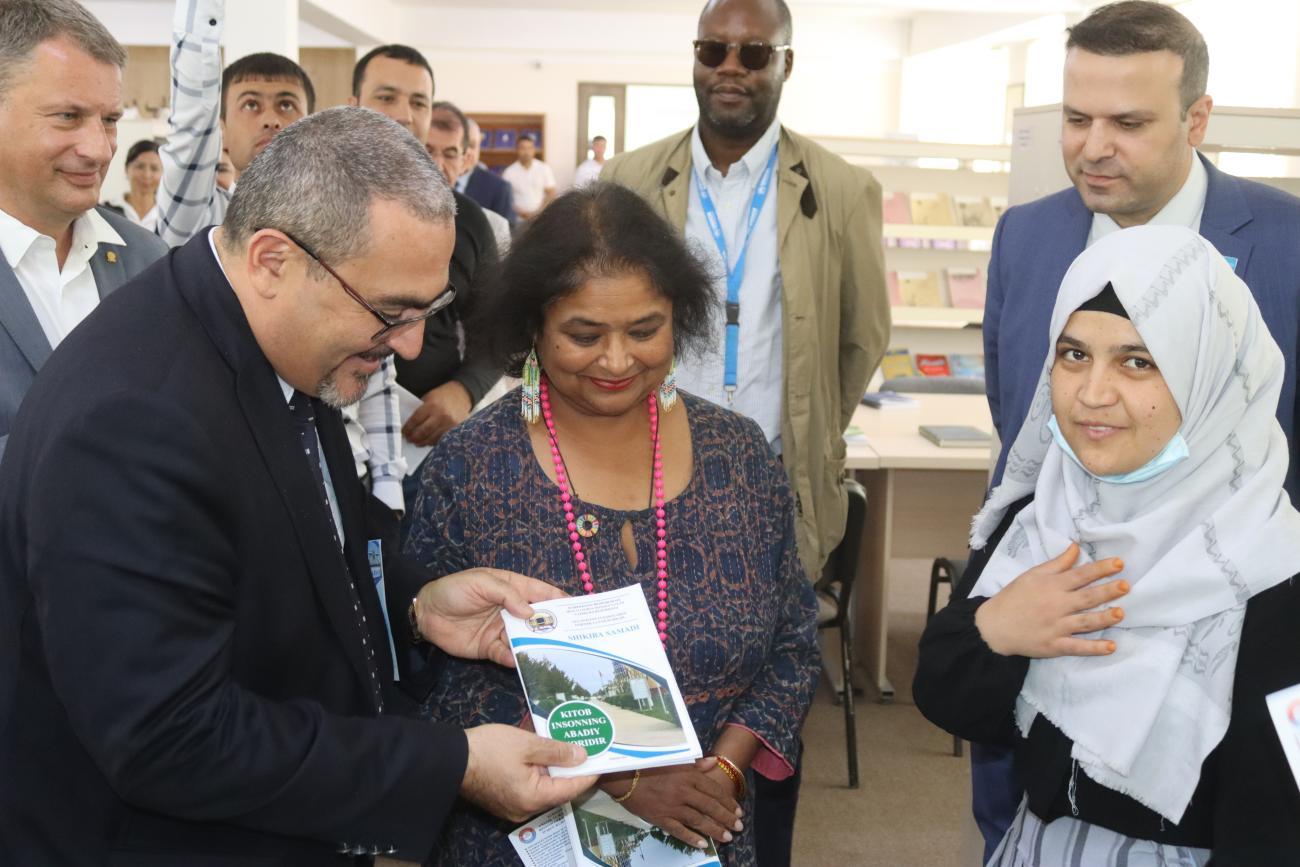
.
In the early 1990s Uzbekistan, the double landlocked country in Central Asia, had just emerged as an independent state from the Soviet Union. With a fragile economy and developing industrial sector, these were challenging times for the newly autonomous country.
Dr. Ramiz Alakbarov, the United Nations Resident and Humanitarian Coordinator for Afghanistan, remembers this period well, having spent the early days of his career working for the United Nations Population Fund (UNFPA) in the Regional Office for Central Asia. In Uzbekistan he witnessed first-hand the challenges in expanding healthcare and other essential services.
"Back in those days the overall developmental context of the country and the challenges experienced were very different from the current level of advancement and development."
Thirty years later, as Dr. Alakbarov returns to the country, Uzbekistan finds itself in a very different position: a key supporter and vital partner in the United Nation’s response to one of the world’s most urgent humanitarian emergencies.
Since the Taliban returned to power in neighboring Afghanistan in August 2021, humanitarian needs across the country have soared. Ninety-five per cent of people do not have enough food to eat. 6.6 million people are at risk of famine and one million children are severely malnourished.
As more and more Afghans are forced to rely on humanitarian assistance in order to survive, UN Afghanistan, led by Dr. Alakbarov and his team, have been working with UN agencies to scale up its response.
Regional cooperation is key
Regional cooperation has been key to enabling the UN’s successful response in Afghanistan, as Dr. Alakbarov learnt during a recent joint mission to Termez in southern Uzbekistan with the Resident Coordinator of Uzbekistan, Ms. Roli Asthana and country representatives from UNICEF and UNHCR.
Termez is a relatively small city of just over 180, 000 people, but it is playing an outsized role in supporting the UN’s emergency operations across the border in Afghanistan. Termez Regional Humanitarian Logistics Hub is situated 2 km from the border and was the first stop of the Resident Coordinators’ joint visit.
The center was set up in October 2021 by UNHCR - the UN Refugee Agency - with strong support from the Government of Uzbekistan. Its proximity to the border means supplies can be moved quickly and easily to where they are needed most.
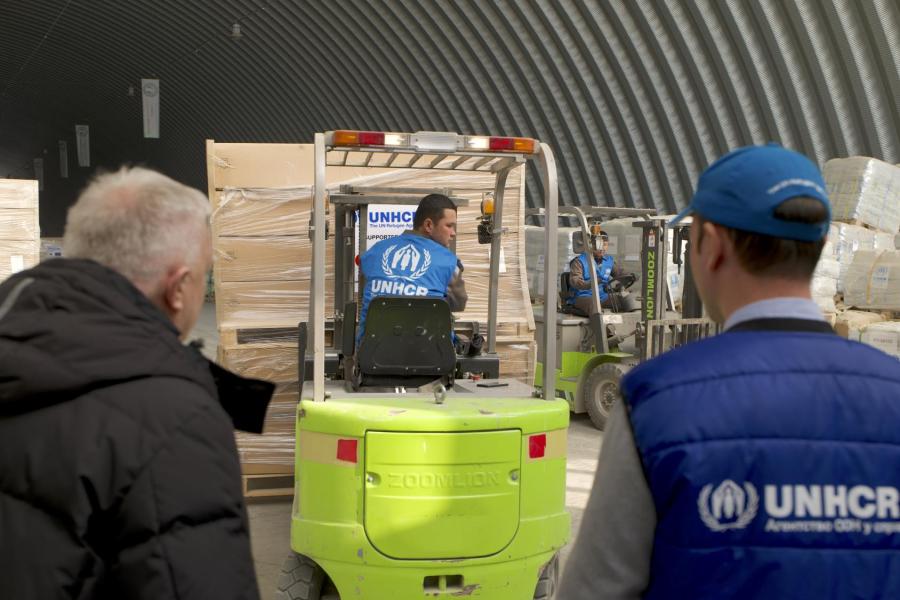
UNHCR Representative for Afghanistan Leonard Zulu explained to the Resident Coordinators’ delegation how the hub’s location in Termez was vital to enabling a quick and flexible humanitarian response.
"Our humanitarian assistance has been brought closer to the Afghanistan operations so that if we need that across the border we can move it as quickly as possible.
So far we have moved 1000 tons from here mainly to Afghanistan but with the recent crisis in Ukraine we have been using some of the humanitarian assistance to help out in Ukraine as well."
With over 9,000 square meters of storage, the warehouse houses a range of emergency food rations, WASH supplies and other relief items including sleeping mats, tarpaulins, fleece, blankets, and kitchen sets.
Essential food items, including flour, travel from the hub in Termez to all corners of Afghanistan.
"Some of them are going to Badakhshan via Dushanbe to in Tajikistan, and some will go directly into trucks where they will be sent all over the north of Afghanistan to Kabul, down to Jalalabad, to Kandahar," explains Finne Lucey, a WFP Logistics Officer.
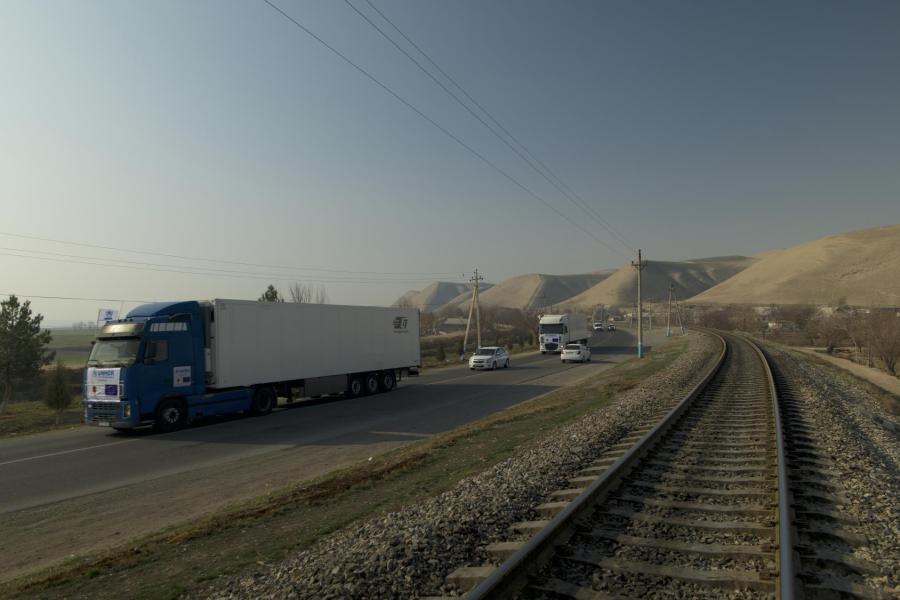
Joining forces across borders
The vast amount of supplies moving in and out of the hub every day is not just an impressive logistical feat, but also a testament to the strong cooperation fostered between different UN agencies and the Government of Uzbekistan.
Speaking to colleagues at the cargo hub, Dr. Alakbarov was struck by the level of inter-agency and cross border collaboration he saw in Termez.
"This is how UNICEF, WFP, UNHCR, and our coordination offices are joining forces across borders to deliver aid to the Afghan people. We have reached millions of people in Afghanistan with essential food aid this winter, and we will continue because no one should be left behind."
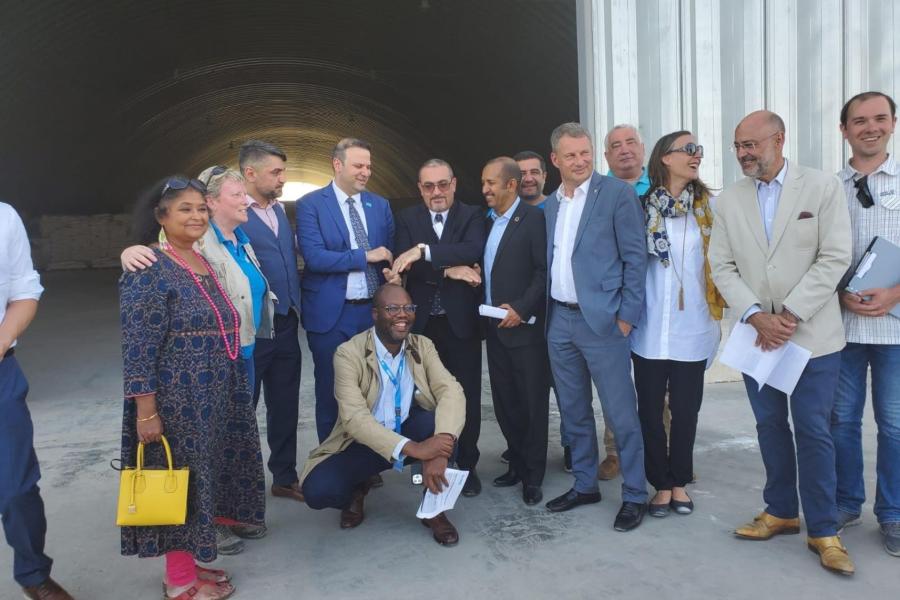
Without the support of the Government of Uzbekistan in providing this high-tech facilitation cargo hub in Termez, it would not be possible to transport such large quantities of aid across the border.
"The government here has said right from the beginning a priority for them is to make sure that they support the humanitarian operations inside of Afghanistan and they're doing just that", explained Simon Hacker, RCO Uzbekistan Team Leader who joined the Resident Coordinators’ delegation.
For Dr. Alakbarov the solidarity he saw in Termez was not surprising. Reflecting on his time in Uzbekistan in the late 1990s he remarked:
"Even back then during difficult times, the people of Uzbekistan have always been welcoming, they always care for their neighbors.
It’s heartwarming to see the level of development in the country today, to see this generosity and open attitude towards Afghans, sharing the fruits of their development."
Beyond emergency relief
The spirit of neighborly solidarity between Uzbekistan and Afghanistan runs deep, and goes beyond the provision of emergency humanitarian relief - as the Resident Coordinators saw during their second stop of their mission to Termez at an education facility for Afghan students.
The Educational Center for Training Afghan Citizens (ECTAC), which was initially set up in 2017 by the governments of Uzbekistan and Afghanistan, delivers a broad range of higher and vocational education and training to Afghans living in Termez.
In December of 2021, as more and more young Afghans began to cross the border into Uzbekistan, UNDP partnered with ECTAC to launch a new project aimed expanding educational opportunities for Afghan students in Termez, with a particular focus on youth and women.
The center offers a wider range of courses, from technical and vocational training to languages and humanities. During a tour of the center, the Resident Coordinators spoke to one of the current students, 17-year-old Shekiba Samadi who was born and raised in Jowzjan province located in the northern part of Afghanistan.
Sheikia has been studying Uzbek language and literature at the center for the last 3 years.
"I really love reading and literature. During the last 3 years of my stay in Uzbekistan, I got familiarized well with Uzbek history and culture and with the help of my teachers studied foreign languages. Now I can read literature and books in Persian, Pashto, Uzbek, Turkish and Russian languages," she mentions.
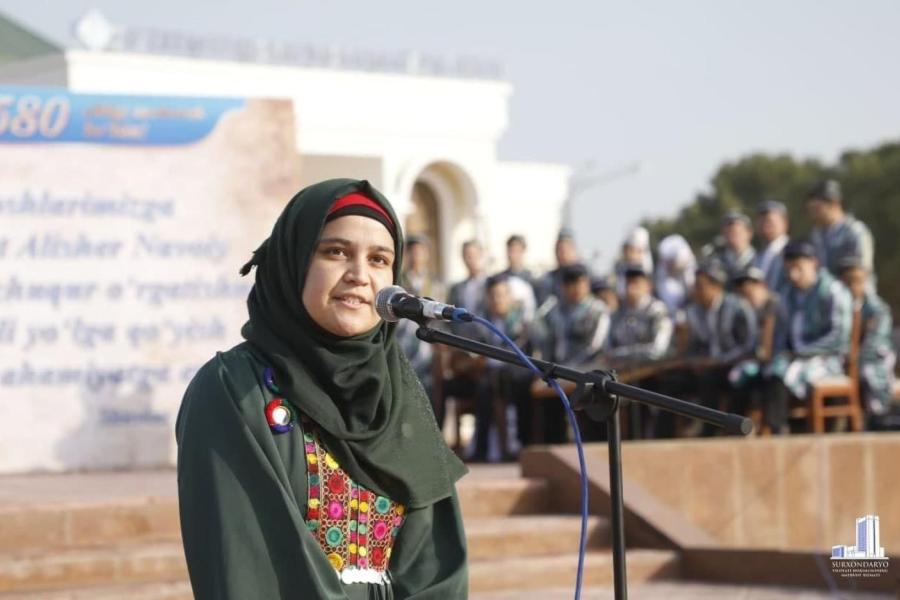
Ahmad Javid Anis, from Sari Pul province in Afghanistan also studies Uzbek at the Centre. He told Dr. Alakbarov that has become so proficient at the language that he is now translating various Uzbek books into Pashto, including a book written by the President of Uzbekistan.
"My future dream is to continue doing research in Uzbek language and literature. I also want to educate the younger generation in my home country and to serve the bright future of Afghanistan."
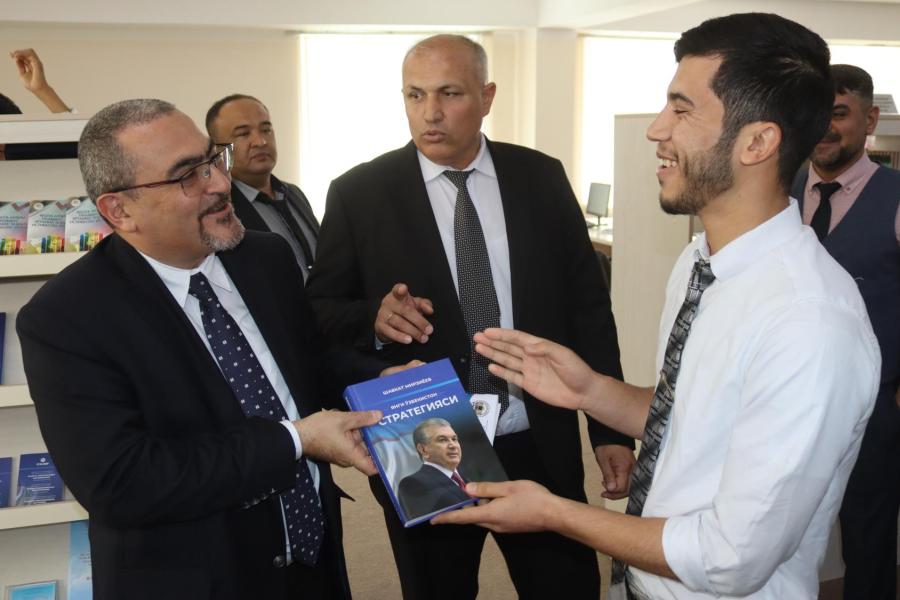
Returning to the UN country office in Afghanistan at the end of the joint mission to Termez, Resident Coordinator Dr. Alakbarov felt inspired from what he saw and hopeful despite the challenges ahead.
Afghanistan remains at a critical juncture. The road ahead for many Afghans may be uncertain, but the joint mission highlighted that the people of Afghanistan can turn to their neighbor to the north for support and solidarity during this extraordinary time.
Together with other regional UN agencies and partners, the Resident Coordinator’s team in Afghanistan is more determined than ever to scale up its operations and ensure that no one is left behind.
"We are not going to stop. We are going to deliver more and reach every family in Afghanistan."
This story was written by Iona Allan of the UN Development Coordination Office with inputs from UN Afghanistan and UN Uzbekistan.
To learn more about the UN humanitarian response in Afghanistan, please read this story.
To learn more about the results of our work in this area and beyond, please read the latest UNSDG Chair Report on DCO.






